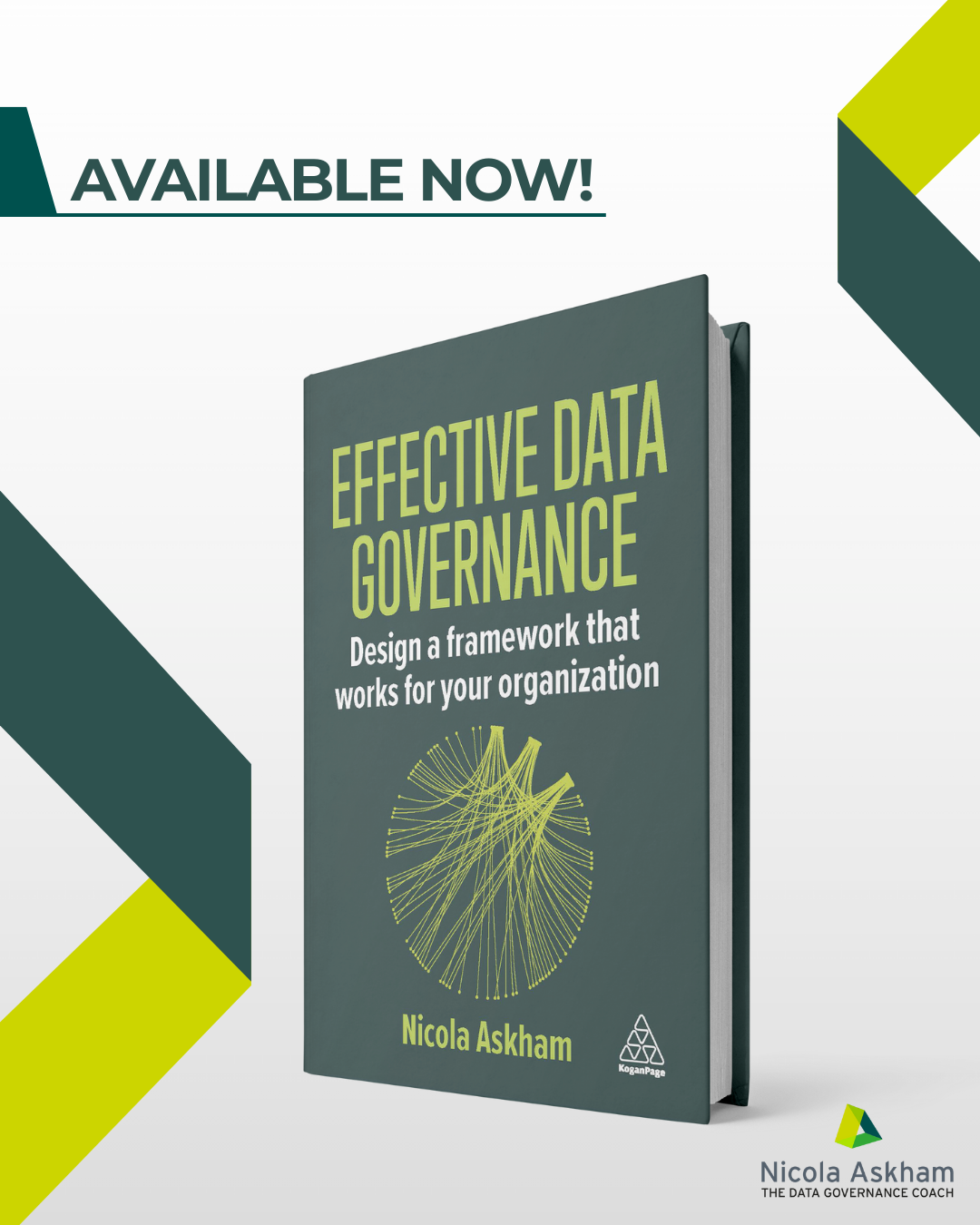The Relationship Between Data Governance and Data Quality
/We often talk about Data Governance and Data Quality in the same breath. This can lead to confusion, with some people assuming they are the same thing when actually, they’re not. However, they’re closely related, and in my experience, they work best when managed by the same team.
Understanding Data Quality and Data Governance
Data Quality is about making sure that data is good enough to use. It’s a straightforward concept, if data is incorrect, incomplete or inconsistent, it can’t support business decisions effectively.
Data Governance, on the other hand, is about creating a structured framework of roles, responsibilities, and processes to manage data.
Although they’re separate disciplines within data management, they are very much intertwined. When you try to improve data quality without governance, you usually end up applying short-term fixes rather than solving the root cause of data issues.
Why You Can’t Have Good Data Quality Without Governance
From my experience, many organisations focus on Data Quality long before they consider Data Governance. After all, it’s easy to understand the need for clean, reliable data. The problem is that without Data Governance, Data Quality efforts are often tactical rather than strategic.
For example, businesses might:
Regularly fix errors in reports but do not address the source of the errors.
Use automated data cleansing when loading data into analytics systems.
Have teams manually correct data every month, quarter, or year.
These approaches may make data usable in the short term, but they do not prevent problems from recurring. The same errors will keep happening, and this is where Data Governance comes in.
Data Governance establishes:
Roles and responsibilities so that specific people (Data Owners and Data Stewards) are accountable for data quality.
Processes to resolve data issues at the source, rather than just fixing them repeatedly at the point the data is used (one of the most valuable Data Governance processes, in my opinion, is data quality issue resolution. This identifies and fixes the root causes of poor data quality rather than applying endless fixes).
Why Data Quality and Data Governance Should Be Managed by the Same Team
Because of their close relationship, Data Quality and Data Governance should be managed together. When separate teams handle them, challenges arise. I have seen organisations where the Data Quality team is focused on fixing errors while a Data Governance team tries to implement a structured framework of definitions and roles, and responsibilities. In such cases, business users tend to bypass Data Governance efforts entirely and go directly to the Data Quality team when they need a quick fix. Their immediate concern is solving their problem in the moment rather than considering long-term improvements.
When the same team is responsible for both Data Quality and Data Governance, they are able to provide short-term fixes while simultaneously working on long-term solutions, ensuring that immediate needs are met without neglecting the bigger picture. It’s also great because they can demonstrate the true value of Data Governance by proactively solving recurring data issues rather than simply reacting to them.
Moving From Reactive to Proactive Data Management
Without Data Governance, organisations are stuck in a cycle of fixing the same problems repeatedly. With Data Governance in place, they can shift to a proactive approach:
Data issues are resolved at the source, reducing ongoing fixes.
Business users understand their role in maintaining data quality.
Data Owners and Stewards take responsibility for preventing and fixing errors.
Many organisations still manually cleanse data before they can use it. However, this is a waste of time and resources and is something which Data Governance eliminates.
Final Thoughts
If your organisation is focusing on Data Quality without Data Governance, you are likely applying temporary fixes rather than permanent solutions. While Data Governance and Data Quality are distinct disciplines, they should work together, ideally within the same team, to ensure sustainable data improvements.
If you found this helpful, please consider sharing this article to help others improve their approach to Data Governance and data quality. And if you’d like more support, you can book a call with me using the button below.
If you would like further support with anything Data Governance related in your organisation, you can book a call with me using the button below.









